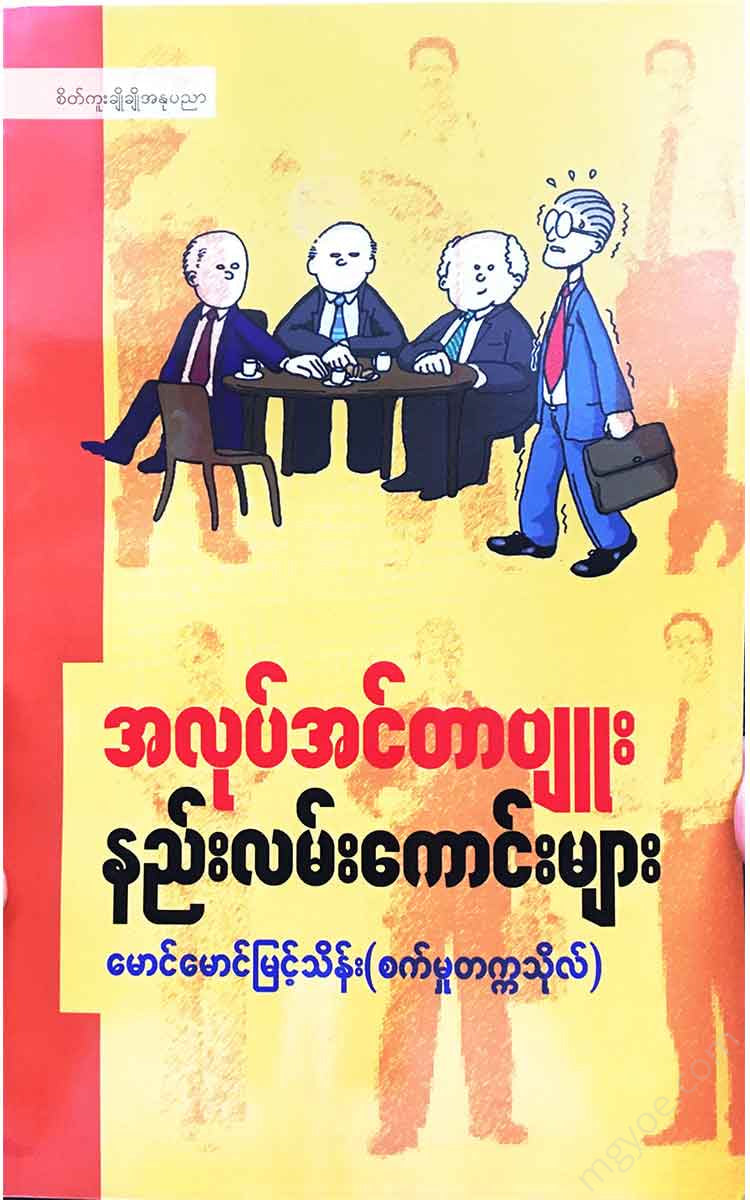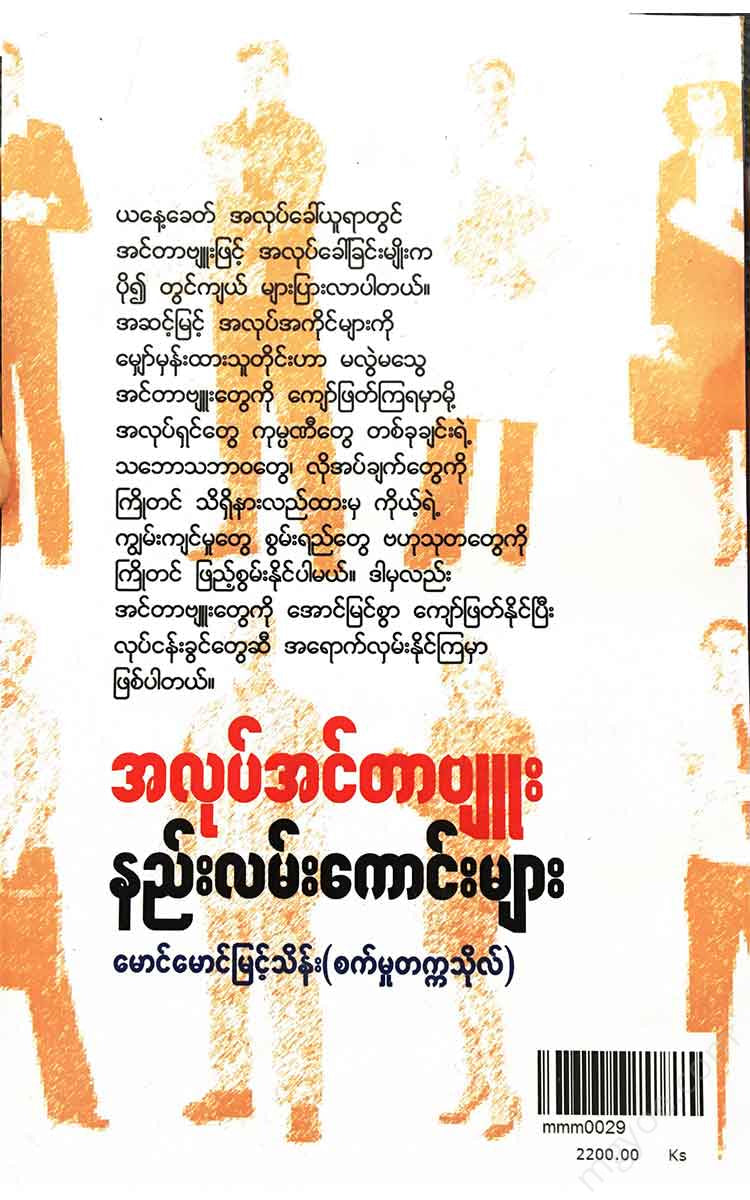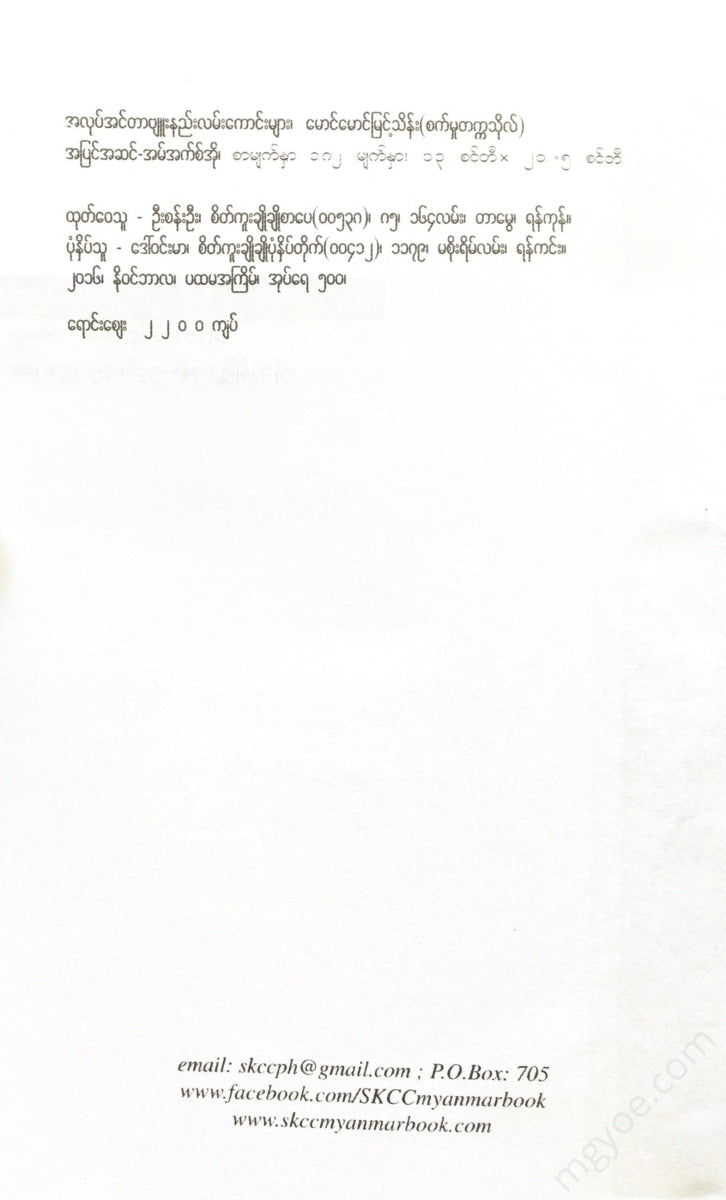စိတ်ကူးချိုချိုစာပေ
Maung Maung Myint Thein (University of Technology) - Good job interview techniques
Maung Maung Myint Thein (University of Technology) - Good job interview techniques
Couldn't load pickup availability
Interviewing is becoming increasingly important in job search. Today's youth are striving to find a job they love, aiming for a good salary and job security. Companies are increasingly looking for critical skills in their interviews to find talented and capable employees .
Employers look at the behavior of the candidate when hiring. They look at his skills , abilities , and knowledge . They also look at the strengths of the candidate . In today's competitive world, employers have started to screen candidates through effective interview methods. Some companies use psychometric tests to screen candidates for high-level positions.
The author has conducted many interviews in his work as an HR Consultant. Today's job seekers are more prepared for interviews than in the past. They prepare for difficult questions. It has been found that those who are prepared are more likely to answer them.
It is important for job applicants to be familiar with IQ tests. IQ tests use general questions and behavioral questions .
First, I would like to present the General Questions for you to prepare in advance.
General Questions
(1) The interviewer often asks the following questions to learn about the applicant's background and experience .
e.g. Tell me about yourself.
( Tell me about yourself.)
This is arguably the strongest question for a job interview because it is the one that gives you the most to say.
It is important to note that this question is an open-ended question. It can help you find out what the respondent is focused on. It can also help you get information about the applicant. It can also help the interviewer get a good source from the applicant. It can also help you find out if the applicant has prepared or not.
As a job applicant, by preparing in advance in both Burmese and English , you will be able to apply to local companies, foreign companies, and NGOs.
As a job applicant , you can briefly answer your name, parents' names, age, marital status, place of residence, educational qualifications, family situation, hobbies, etc.
(2) In the final stage of the interview , when selecting the most suitable person from two or three candidates, the interviewer usually asks the following questions:
(1). What makes you unique?
What makes you unique?
(2) What qualities do you have that the others don't have?
What qualities do you have that others don't?
(3) What can you bring to this position that the other candidates cannot? What can you bring to this position that the other candidates cannot?
By answering the above questions, you can gain valuable information from the employer. You can identify different qualities when competitors are tied. In fact, the respondent needs to answer his strengths.
The interviewer can assess the applicant's familiarity with the position.
(3) When interviewers want to assess a job applicant's qualifications for the position they are applying for , they often ask the following questions.
(1) What do you see as the most important qualities needed to do this job?
What do you see as the most important qualities needed to do this job?
(2) What added value would you bring to this job?
What additional value do you want to add to this work?
(3) Could you tell me what areas of the job would be a good fit for you?
You can tell me what areas of work suit you best.
To answer the above questions, job applicants should consider the answers below.
I think the most important quality needed to do this job would be creative problem solving.
I think the most important quality for this job would be creative problem solving.
A candidate will be selected over their competitors only if they answer on their strengths . The candidate must show that they are familiar with the job and that their strengths are relevant to the job.
( 4) The interviewer on the employer's side is the job applicant.





